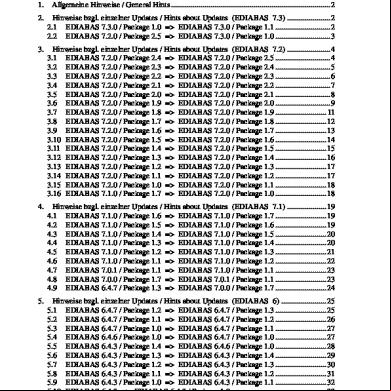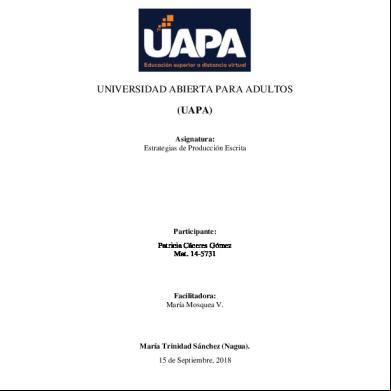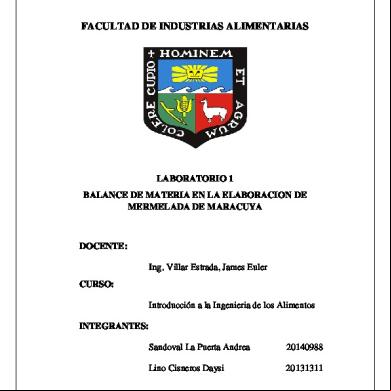Hyphen Package 3r4z69
This document was ed by and they confirmed that they have the permission to share it. If you are author or own the copyright of this book, please report to us by using this report form. Report 3b7i
Overview 3e4r5l
& View Hyphen Package as PDF for free.
More details w3441
- Words: 1,118
- Pages: 6
Two words brought together as a compound may be written separately, written as one word, or connected by hyphens. For example, three modern dictionaries all have the same listings for the following compounds: hair stylist
hairsplitter
hairhair-raiser
Another modern dictionary, however, lists hairstylist, hairstylist, not as hair stylist. Compounding Compounding is obviously in a state of flux, and authorities do not always agree in all cases, but the uses of the hyphen offered here are generally agreed upon.
1. Use the hyphen to two or more words serving as a single adjective before a noun. A one-way street Chocolate-covered peanuts Well-known author However, modifiers after a noun are not hyphenated: The peanuts that were chocolate covered The author who is well known 2. Use the hyphen with compound numbers forty-six sixty-three The teacher was sixty-three years old.
3. Use the hyphen to avoid confusion or an awkward combination of letters: to re-sign a petition (vs. resign a job) semi-independent (but) semifluid shell-like (but) childlike 4. Use the hyphen with the pre-fixes ex-(meaning “former”), self-, all-; with the suffix –elect; between a prefix and a capitalized word; and with figures or letters: ex-wife self-help mid-September all-inclusive mayor-elect anti-American T-shirt Pre-Civil War mid-1980’s 5. Use the hyphen to divide words at the end of the line, and make the break only the syllables of the word. Prefer-ence Sell-ing Note: Don’t put the first or last letter of a word at the end or beginning of a line, and don’t’ put two-letter endings at the beginning of a line. Love-ly (This word cannot be hyphenated because the –ly cannot be put on the next line) -Divide words already hyphenated only at the hyphen. Mass-produced -Divide words ending in –ing between those consonants that you double when adding –ing. Plan-ning
Worksheet 9 – Hyphens! HYPHENS A hyphen is used to two adjectives together to form a compound adjective in order to make the meaning of the sentence clear. E.g. John had twenty pound notes. John had twenty-pound notes. Notice how each sentence has a different meaning. In the first, John has twenty £1 notes, but in the second, the hyphen makes the notes £20 notes. A. Match words from the two columns to make hyphenated compound nouns. Moth Heart Tight Hot Hair Red Flat Cold Rock Slow
Hot Headed Broken Bottom Footed Eaten Blooded Witted Fisted Raising
B. Ambiguity – when the meaning of a sentence is not clear – is often caused by incorrect punctuation. Explain why each sentence is ambiguous, then punctuate the sentneces so that the meaning becomes clear. 1. 2. 3. 4. 5.
Man eating tiger destroyed. For sale: a little used boat. Two week holidays to be won! Mountain holiday prices at rock bottom. Beware of car chasing dog on M25.
C. Define each of the following so that their meaning is explicit. 1. 2. 3. 4. 5. 6. 7. 8. 9. 10.
yellow-bellied even-tempered tight-lipped baby-faced wide-eyed light-footed pig-headed heavy-handed hard-hearted long-winded
D. Match the following definitions with the compound adjectives in the box. 1. 2. 3. 4. 5. 6. 7. 8. 9. 10
loose-lipped tight-fisted sure-footed cold-hearted thin-skinned short-tempered green-eyed bull-headed stone-faced stiff-necked
Jealousy is a monster that is… To show no emotions A miser To be agile Stubborn To have no comion for others To be very proud Quick to anger Very sensitive A gossip
Perfect Punctuation
Page 20 of 58
© ZigZag Education, 2004
Punctuation Marks #2
Name _____________________________ Date _____________ Period ___________
1)
Use a hyphen in compound numbers from twenty-one through ninetynine.
2)
Use a hyphen in a fraction that is used as a modifier. Do not use a hyphen in a fraction used as a noun. • James awoke one-half hour before Harry. (modifier) • One third of the money will be spent on research. (noun)
3)
Use a hyphen in certain compound nouns and compound modifiers only when it comes before the word it modifies. • My great-aunt loves to knit. (noun) • A well-rehearsed band played first. (modifier)
4)
Use a dash to show a sudden break or change in thought. • Mary--she just turned twelve--is my neighbor.
5)
Use parentheses to set off information that is not part of the main statement but is important to include. • The yo-yo ( spinning top with string) has been popular for
years. 6)
Directions:
Use brackets to enclose an explanation added to quoted or parenthetical material. • The doctor said, “It [the sprain] doesn’t look serious.” Insert apostrophes, hyphens, dashes, parentheses, quotation marks, underlining, or brackets as needed.
1.
Rolanda’s dad is thirty seven years old.
2.
The bakerys streusal a German dessert is my favorite.
3.
The scoreboard donated by Christys Grocery needs to be replaced.
4.
Mr. Jones the man who owns the Palace Theater gave us free tickets.
5.
Did Ms. Beasley get together with her ex husband?
6.
Bingo was Janines well trained dog.
7.
Dr. Khanduja hes from India is my familys doctor.
8.
Saint Bernards huge, hearty dogs are popular in the Alps.
9.
The clock on my desk a present from mom is shaped like a computer.
10.
The book Martian Chronicles has twenty two chapters.
11.
Mr. Winston said, “Roseann really deserves this award the student achievement award for all her hard work this year.”
12.
The Lions Monroe High School soccer team thwarted our entire offense.
13.
After dinner, we visited my great grandmother.
14.
George loved the car because of its old fashioned appearance.
15.
The brown mare we now have four horses turned out to be a great addition.
16.
We should go camping on Aunt Merediths property this summer said Gus.
17.
The basketball team scored eighty eight points.
18.
One third cup of oil is needed to make these brownies.
19.
Three fourths of our class enjoyed reading Indian in the Cupboard.
20.
My cousin Phil he turned thirteen last month is staying at my grandmothers.
21.
Josh is our first string tackle.
22.
Alexa is looking forward to this months relaxing vacation at the beach.
23.
The kiwi a small flightless bird native to Australia lays a large egg.
24.
The batter, a lanky left hander, swung at Jakes first three pitches.
25.
“That article in the newspaper the Chronicle was very controversial,” said Mr. Dodge.
26.
Please to read Lost Again page 5 which is the first chapter of our book Surviving the Storm.
27.
One fifth of Mabels house was underwater after the storm.
28.
The proposition ed with a two thirds majority.
29.
Josie tried to in the womens discussion.
30.
I know its an unpopular decision tearing down the theater, said Mr.Cranky, but it must be done.
hairsplitter
hairhair-raiser
Another modern dictionary, however, lists hairstylist, hairstylist, not as hair stylist. Compounding Compounding is obviously in a state of flux, and authorities do not always agree in all cases, but the uses of the hyphen offered here are generally agreed upon.
1. Use the hyphen to two or more words serving as a single adjective before a noun. A one-way street Chocolate-covered peanuts Well-known author However, modifiers after a noun are not hyphenated: The peanuts that were chocolate covered The author who is well known 2. Use the hyphen with compound numbers forty-six sixty-three The teacher was sixty-three years old.
3. Use the hyphen to avoid confusion or an awkward combination of letters: to re-sign a petition (vs. resign a job) semi-independent (but) semifluid shell-like (but) childlike 4. Use the hyphen with the pre-fixes ex-(meaning “former”), self-, all-; with the suffix –elect; between a prefix and a capitalized word; and with figures or letters: ex-wife self-help mid-September all-inclusive mayor-elect anti-American T-shirt Pre-Civil War mid-1980’s 5. Use the hyphen to divide words at the end of the line, and make the break only the syllables of the word. Prefer-ence Sell-ing Note: Don’t put the first or last letter of a word at the end or beginning of a line, and don’t’ put two-letter endings at the beginning of a line. Love-ly (This word cannot be hyphenated because the –ly cannot be put on the next line) -Divide words already hyphenated only at the hyphen. Mass-produced -Divide words ending in –ing between those consonants that you double when adding –ing. Plan-ning
Worksheet 9 – Hyphens! HYPHENS A hyphen is used to two adjectives together to form a compound adjective in order to make the meaning of the sentence clear. E.g. John had twenty pound notes. John had twenty-pound notes. Notice how each sentence has a different meaning. In the first, John has twenty £1 notes, but in the second, the hyphen makes the notes £20 notes. A. Match words from the two columns to make hyphenated compound nouns. Moth Heart Tight Hot Hair Red Flat Cold Rock Slow
Hot Headed Broken Bottom Footed Eaten Blooded Witted Fisted Raising
B. Ambiguity – when the meaning of a sentence is not clear – is often caused by incorrect punctuation. Explain why each sentence is ambiguous, then punctuate the sentneces so that the meaning becomes clear. 1. 2. 3. 4. 5.
Man eating tiger destroyed. For sale: a little used boat. Two week holidays to be won! Mountain holiday prices at rock bottom. Beware of car chasing dog on M25.
C. Define each of the following so that their meaning is explicit. 1. 2. 3. 4. 5. 6. 7. 8. 9. 10.
yellow-bellied even-tempered tight-lipped baby-faced wide-eyed light-footed pig-headed heavy-handed hard-hearted long-winded
D. Match the following definitions with the compound adjectives in the box. 1. 2. 3. 4. 5. 6. 7. 8. 9. 10
loose-lipped tight-fisted sure-footed cold-hearted thin-skinned short-tempered green-eyed bull-headed stone-faced stiff-necked
Jealousy is a monster that is… To show no emotions A miser To be agile Stubborn To have no comion for others To be very proud Quick to anger Very sensitive A gossip
Perfect Punctuation
Page 20 of 58
© ZigZag Education, 2004
Punctuation Marks #2
Name _____________________________ Date _____________ Period ___________
1)
Use a hyphen in compound numbers from twenty-one through ninetynine.
2)
Use a hyphen in a fraction that is used as a modifier. Do not use a hyphen in a fraction used as a noun. • James awoke one-half hour before Harry. (modifier) • One third of the money will be spent on research. (noun)
3)
Use a hyphen in certain compound nouns and compound modifiers only when it comes before the word it modifies. • My great-aunt loves to knit. (noun) • A well-rehearsed band played first. (modifier)
4)
Use a dash to show a sudden break or change in thought. • Mary--she just turned twelve--is my neighbor.
5)
Use parentheses to set off information that is not part of the main statement but is important to include. • The yo-yo ( spinning top with string) has been popular for
years. 6)
Directions:
Use brackets to enclose an explanation added to quoted or parenthetical material. • The doctor said, “It [the sprain] doesn’t look serious.” Insert apostrophes, hyphens, dashes, parentheses, quotation marks, underlining, or brackets as needed.
1.
Rolanda’s dad is thirty seven years old.
2.
The bakerys streusal a German dessert is my favorite.
3.
The scoreboard donated by Christys Grocery needs to be replaced.
4.
Mr. Jones the man who owns the Palace Theater gave us free tickets.
5.
Did Ms. Beasley get together with her ex husband?
6.
Bingo was Janines well trained dog.
7.
Dr. Khanduja hes from India is my familys doctor.
8.
Saint Bernards huge, hearty dogs are popular in the Alps.
9.
The clock on my desk a present from mom is shaped like a computer.
10.
The book Martian Chronicles has twenty two chapters.
11.
Mr. Winston said, “Roseann really deserves this award the student achievement award for all her hard work this year.”
12.
The Lions Monroe High School soccer team thwarted our entire offense.
13.
After dinner, we visited my great grandmother.
14.
George loved the car because of its old fashioned appearance.
15.
The brown mare we now have four horses turned out to be a great addition.
16.
We should go camping on Aunt Merediths property this summer said Gus.
17.
The basketball team scored eighty eight points.
18.
One third cup of oil is needed to make these brownies.
19.
Three fourths of our class enjoyed reading Indian in the Cupboard.
20.
My cousin Phil he turned thirteen last month is staying at my grandmothers.
21.
Josh is our first string tackle.
22.
Alexa is looking forward to this months relaxing vacation at the beach.
23.
The kiwi a small flightless bird native to Australia lays a large egg.
24.
The batter, a lanky left hander, swung at Jakes first three pitches.
25.
“That article in the newspaper the Chronicle was very controversial,” said Mr. Dodge.
26.
Please to read Lost Again page 5 which is the first chapter of our book Surviving the Storm.
27.
One fifth of Mabels house was underwater after the storm.
28.
The proposition ed with a two thirds majority.
29.
Josie tried to in the womens discussion.
30.
I know its an unpopular decision tearing down the theater, said Mr.Cranky, but it must be done.










